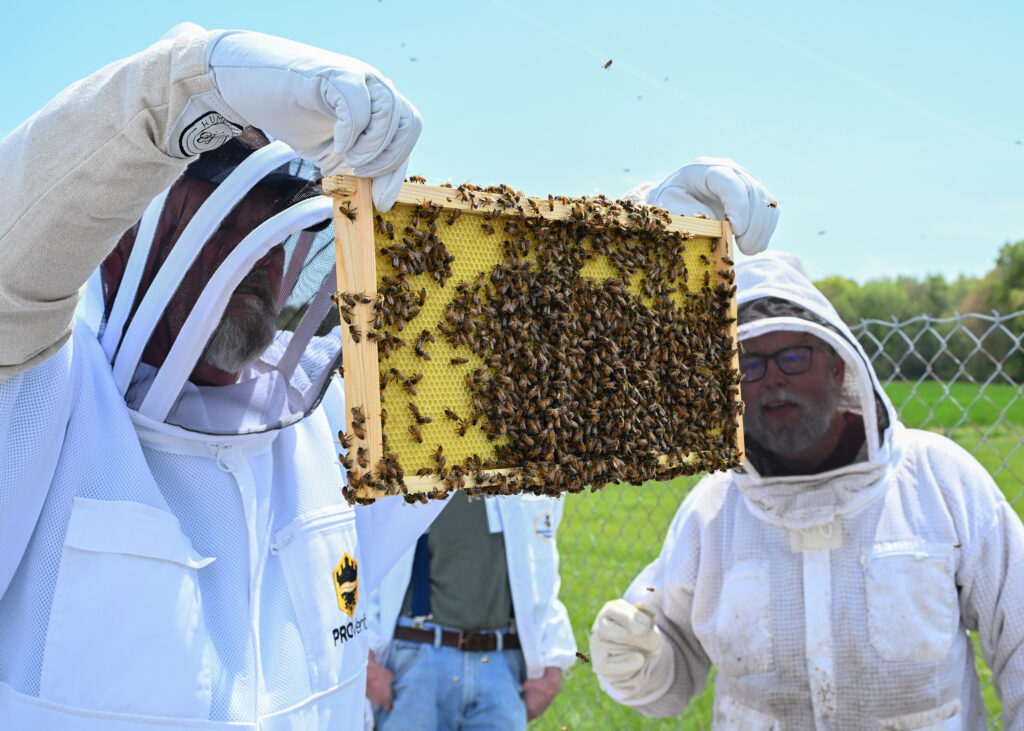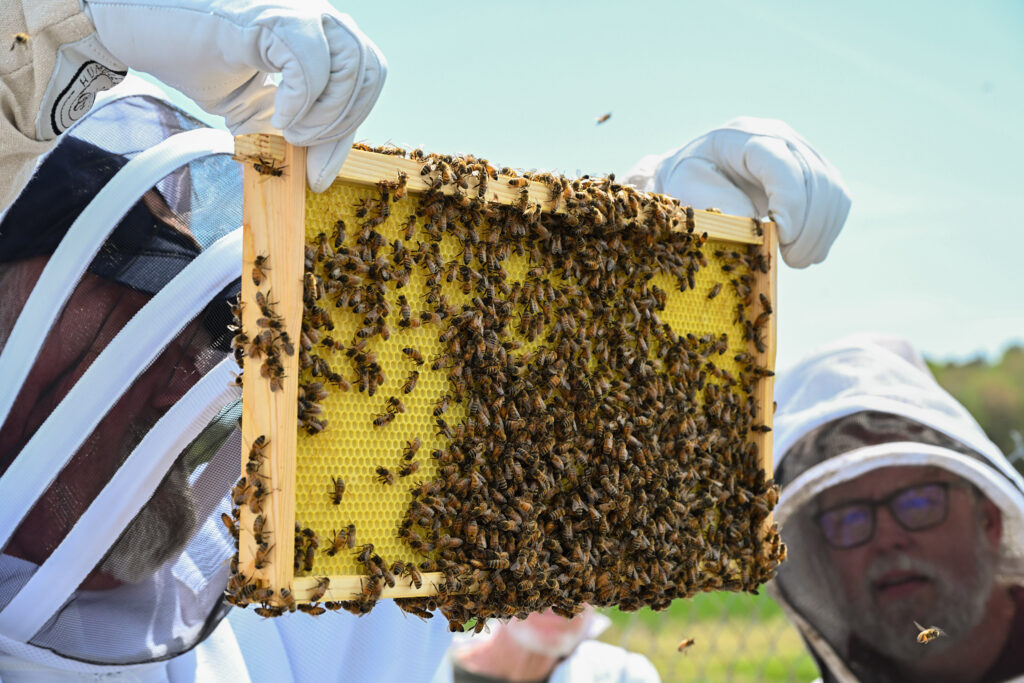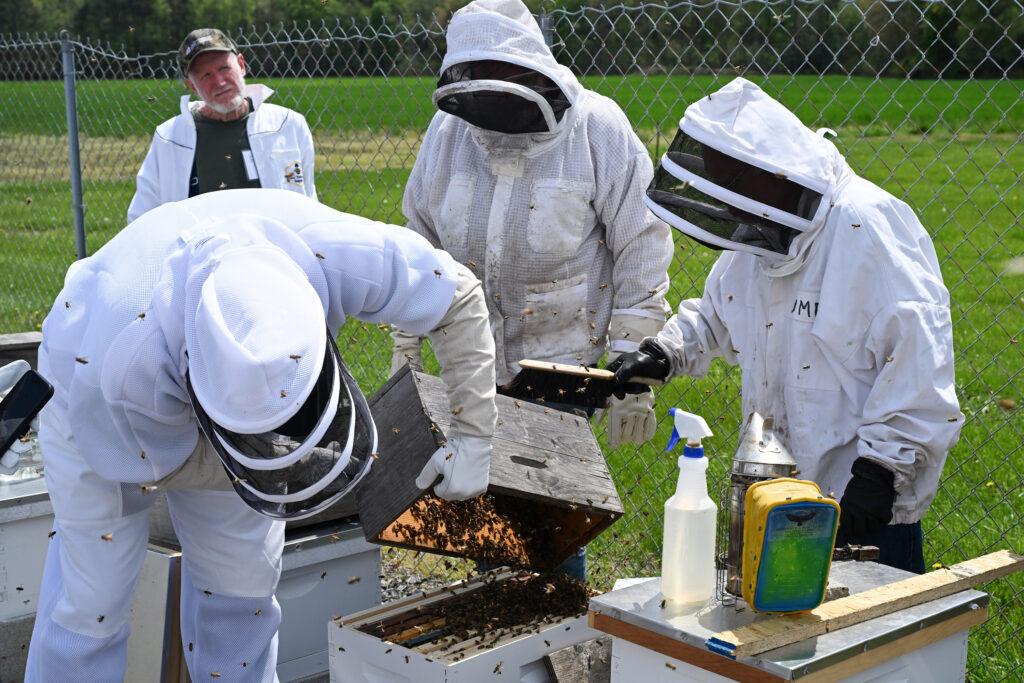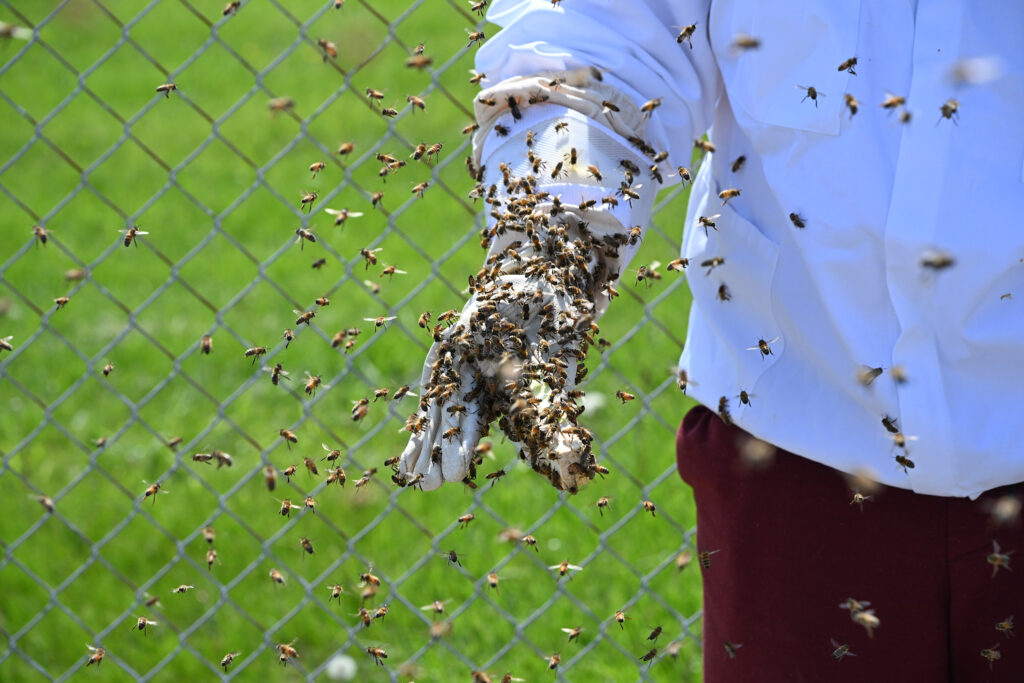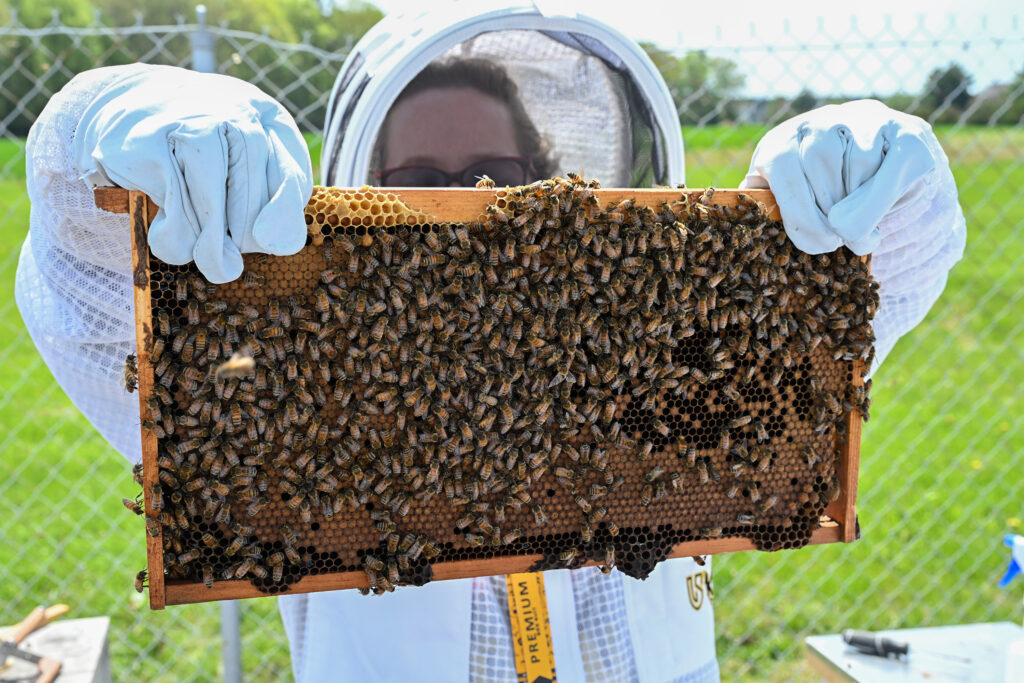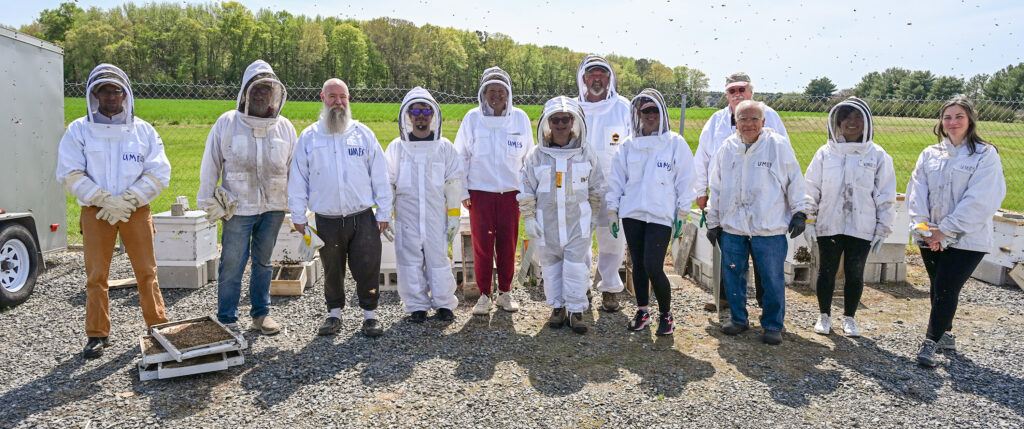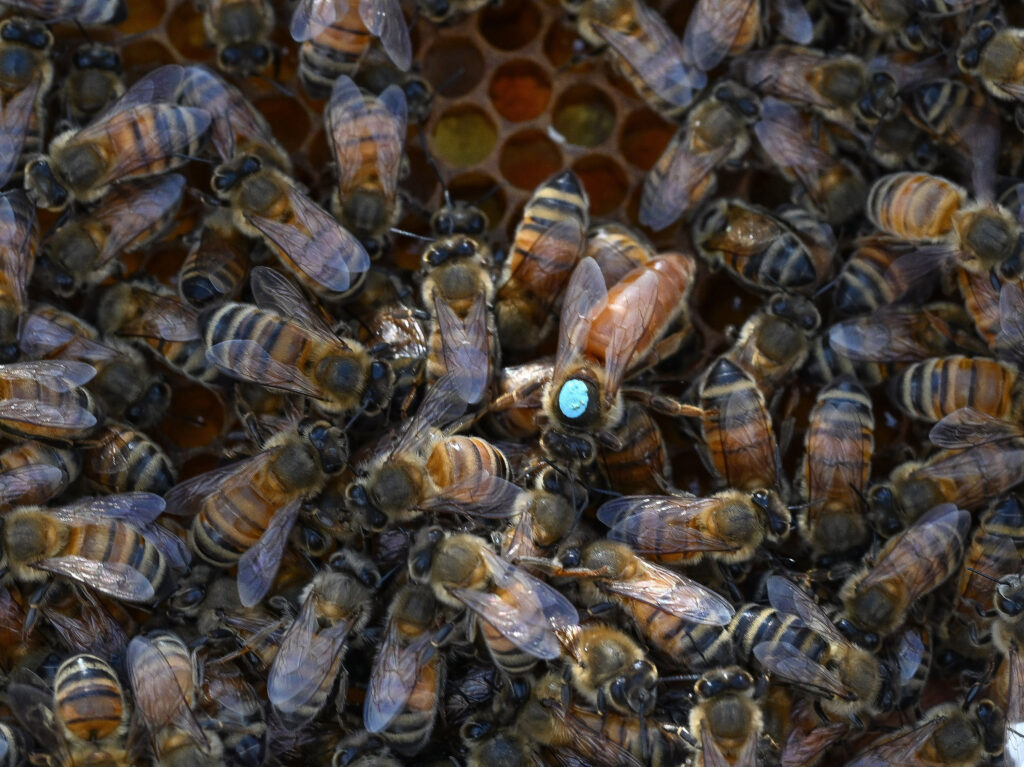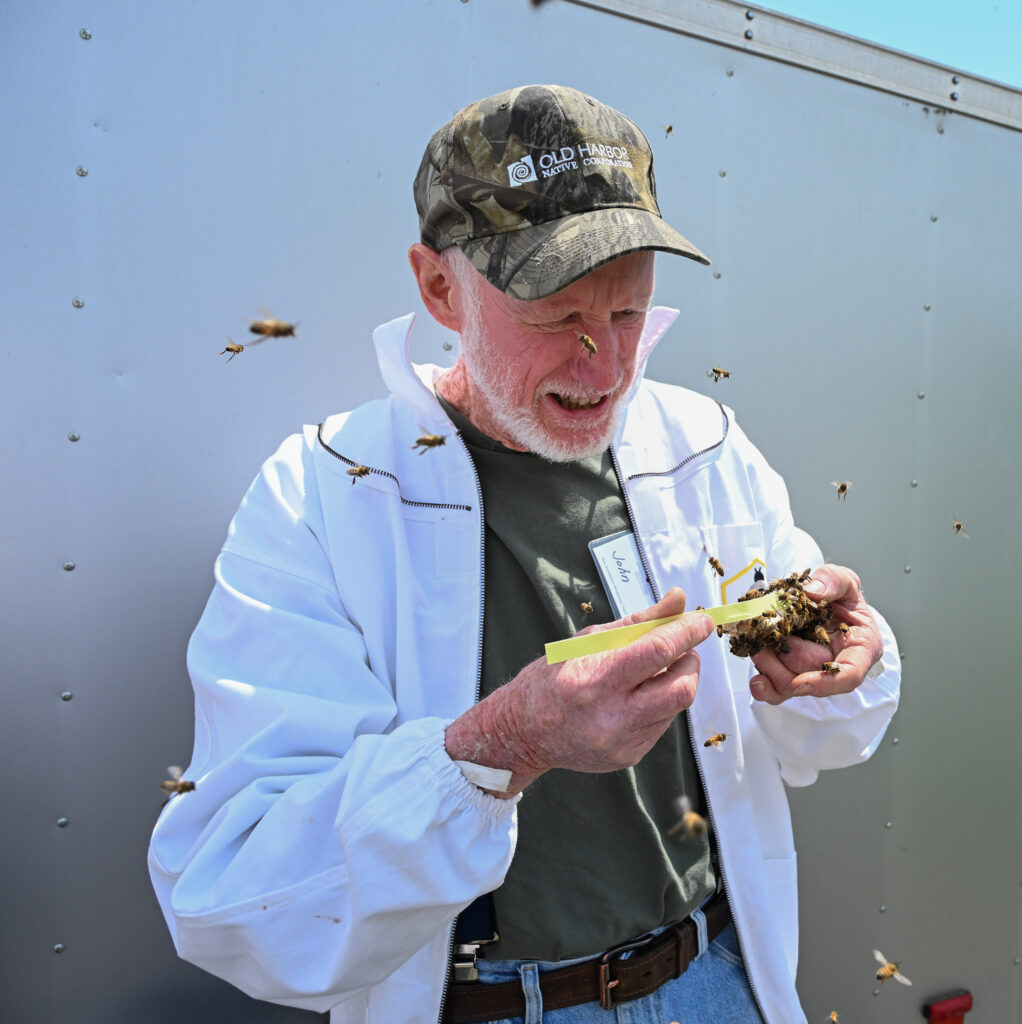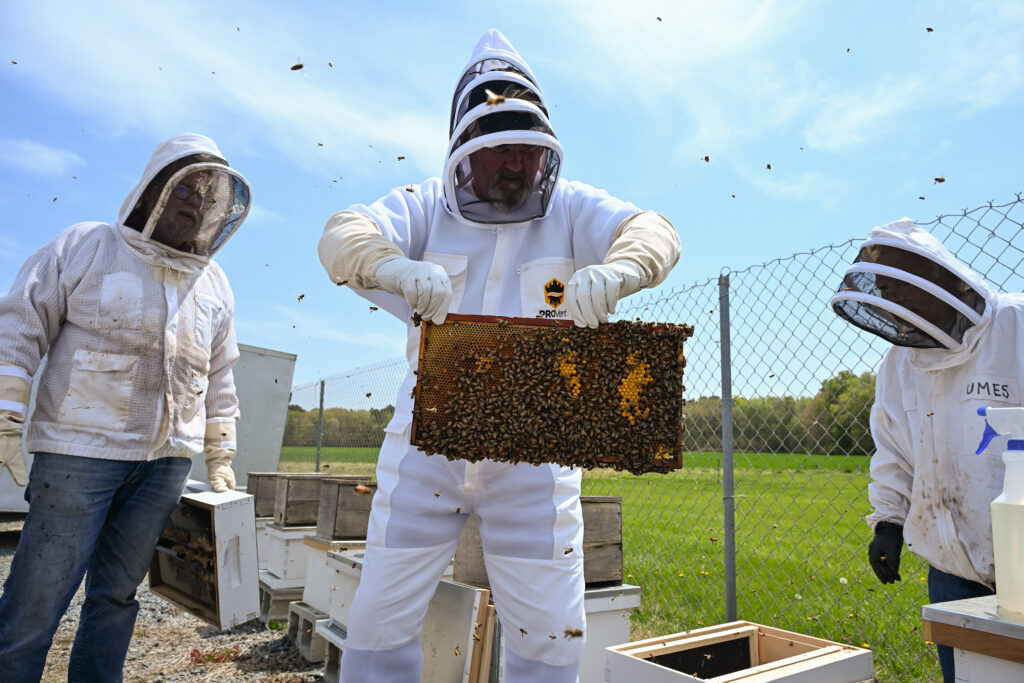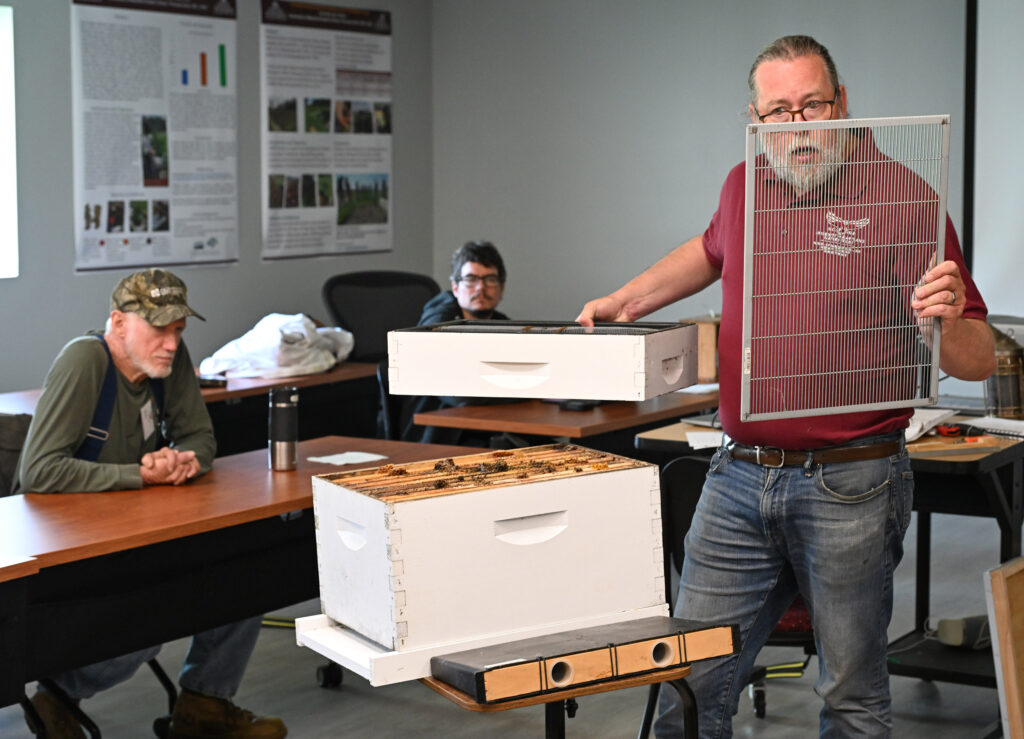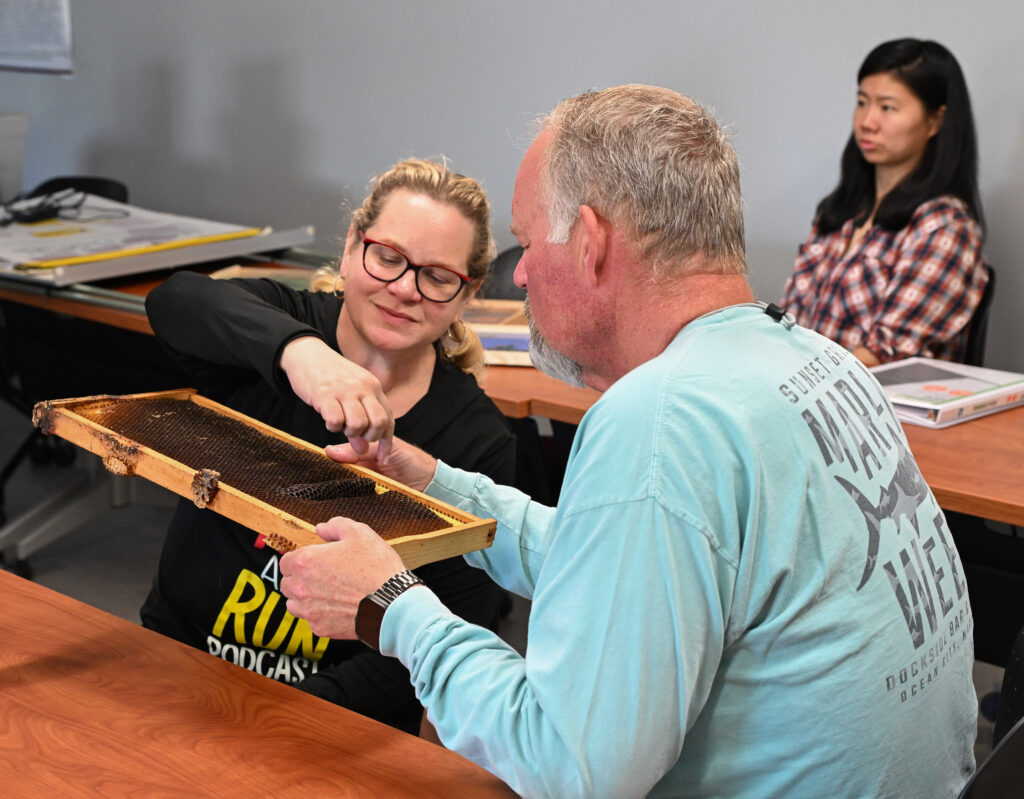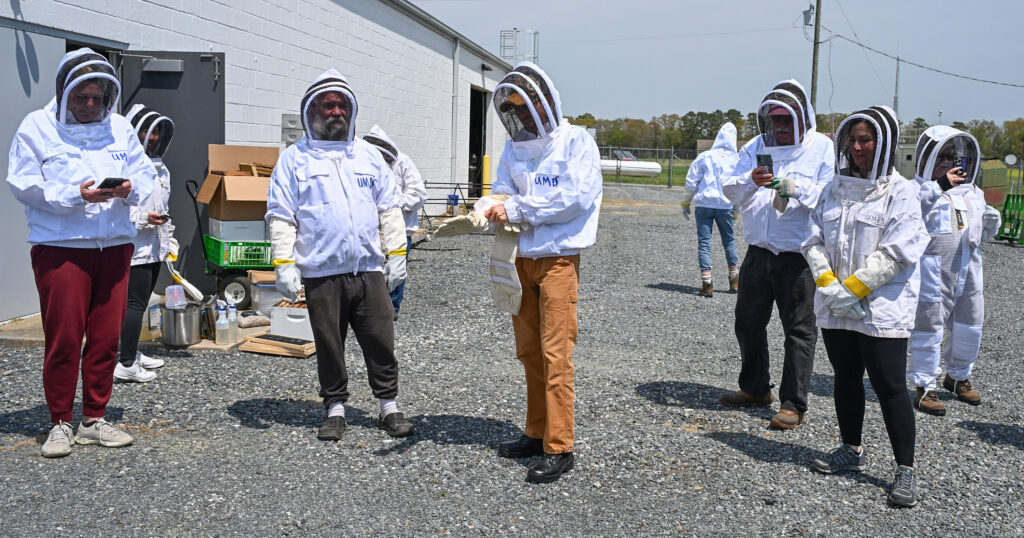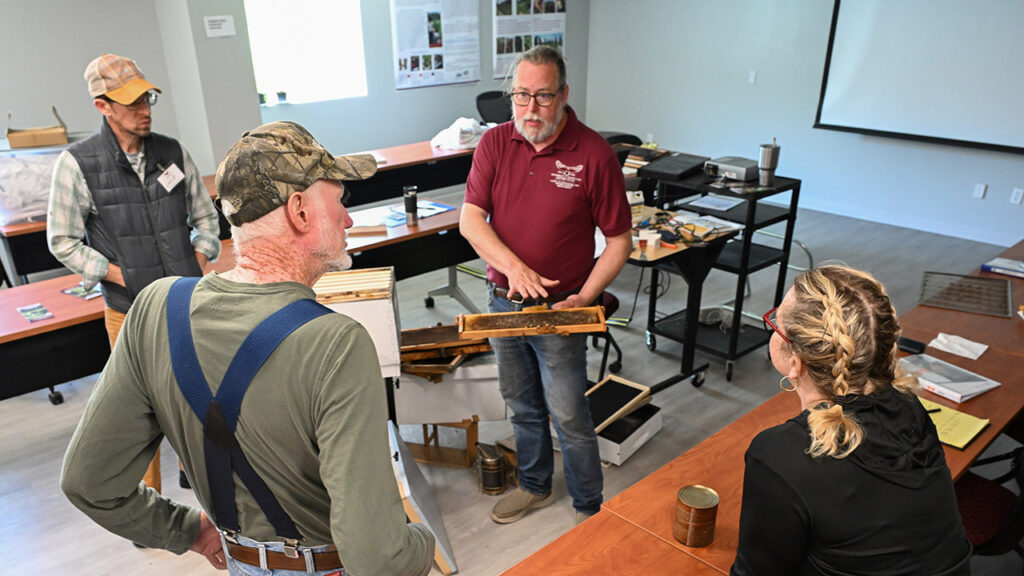
UMES Extension Apiary Program
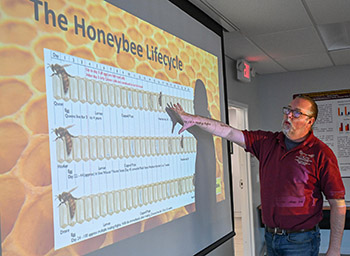
The University of Maryland Eastern Shore Extension’s Honeybee Keeping/Apiary Program was reimagined in 2025.
Stephen Goewey, left, joined UMES Extension as beekeeper and program assistant and is planning a full slate of classes and workshops.
Offerings will range from beginners to ones for experienced beekeepers who want to hone their skills managing honeybee colonies.
Sign up now for our next half-day workshop that will take the mystery out of hive inspections, equip beekeepers with the skills to confidently assess colony health and make informed management decisions. The workshop will be held May 17 from 9 a.m.-2 p.m. at the apiary located at the UMES Research, Extension and Teaching Farm in Princess Anne. Pre-registration is required.
Why Honeybees are Important
Maintaining healthy honeybee colonies is very important to Maryland agriculture. Crops valued in excess of $40 million require or benefit from honeybee pollination in the State. Managed colonies are increasingly important since most wild honey bees have died due to parasitic mites, according to Maryland Department of Agriculture.
Beekeeping is a popular hobby and source of income for beekeepers. There are more than 2,300 beekeepers in Maryland who keep roughly 18,700 colonies scattered throughout the state.
Maryland law requires everyone who keeps bees to register their colonies within 30 days of first obtaining a honeybee colony and annually thereafter.
How UMES is Helping
To educate the community, a key initiative of the UMES Extension program will be the creation of pollinator gardens and an apiary park at the UMES Research, Extension and Teaching Farm on Stewart Neck Road in Princess Anne, Maryland.
These gardens will serve as living classrooms, demonstrating the essential relationship between pollinators, biodiversity and food systems.
Our initial colonies will provide a foundation for educating farmers and the community about the vital role of pollinators in agriculture and the environment.
Throughout the year, the Apiary Program will offer hands-on workshops covering every stage of beekeeping — from installing the first package, or nuc, to inspecting hives to harvesting honey.
The planned workshops and hands-on activities will address hive management, pollinator-friendly gardening, habitat creation, marketing and profitability, and meaningful steps participants can take to support pollinator populations.
The UMES program also plans educational outreach to schools and community groups, engaging learners of all ages in interactive programs.
Beekeeping Workshop at UMES Farm
UMES Extension Beekeeper and Program Assistant Stephen Goewey leads a hands-on beekeeping basics workshop, April 19, at the University of Maryland Eastern Shore Research, Extension and Teaching Farm in Princess Anne. The workshop offered an introduction to beekeeping, and essential knowledge and practical skills needed to start and maintain a healthy bee colony. Photos by Todd Dudek, UMES Ag Communications

